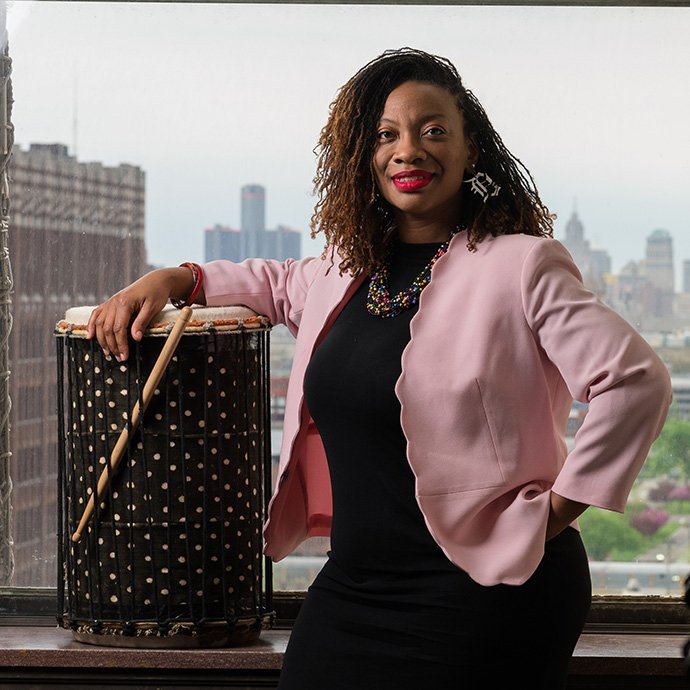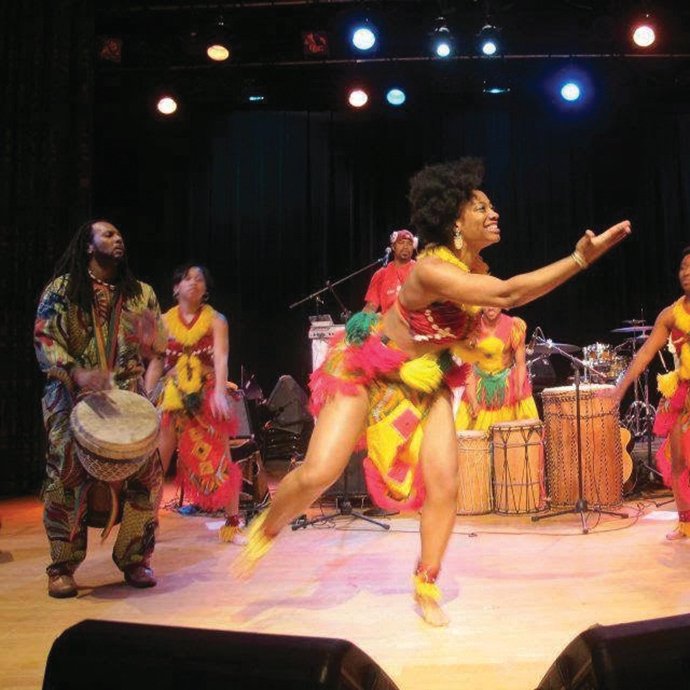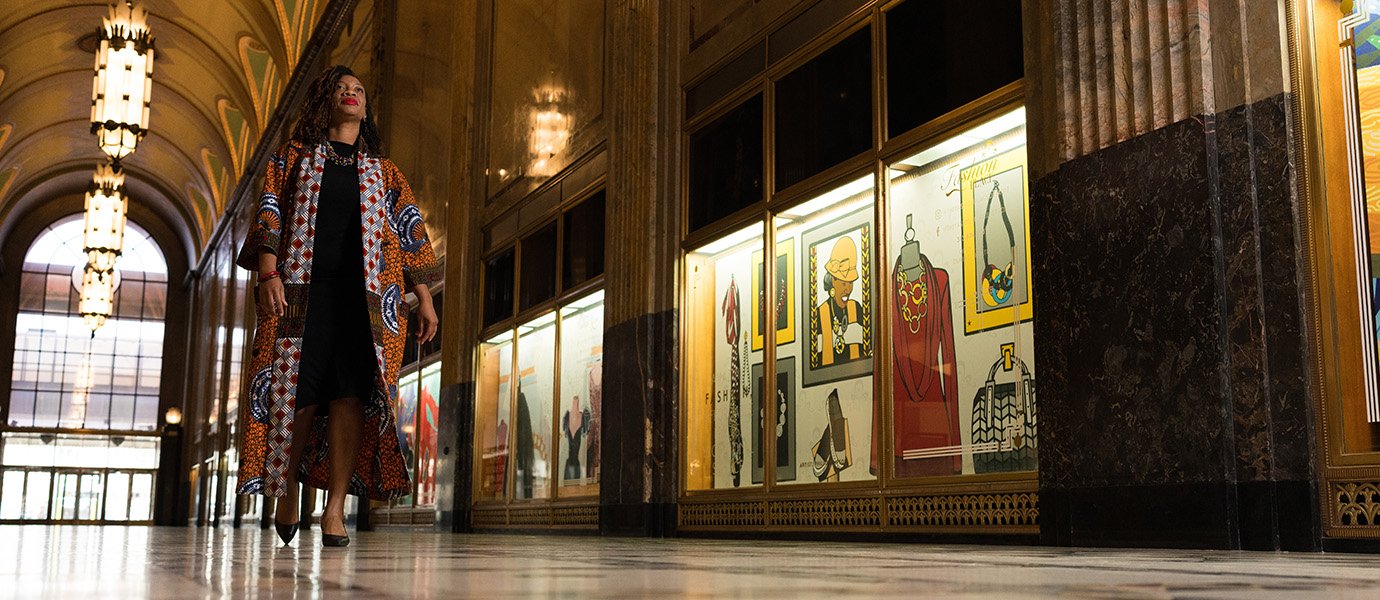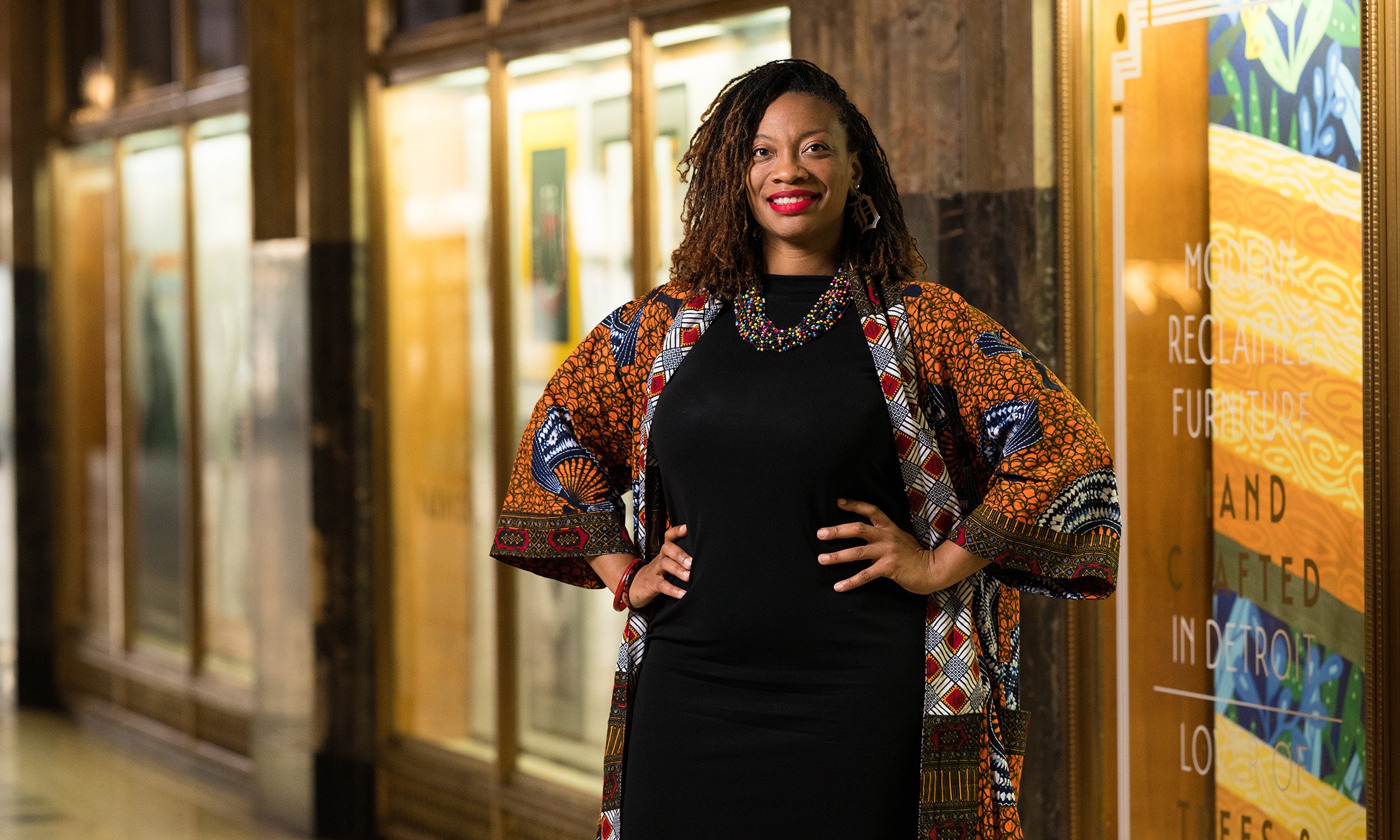Defining Moments
Rhythms discovered in college set the tone of alum’s life
As an undergraduate at Oakland University, Lohren Carter-Nzoma, CAS ’02, had a very robust experience on campus, immersing herself in studies and extracurricular activities. “My time at OU has completely shaped my life,” she says.
Carter-Nzoma came to OU in the wake of a family legacy. Her grandmother’s first cousin was Manuel Pierson, Ph.D., known for his pioneering diversity initiatives during his 28-year career at OU.
“He was a really big influence in our lives,” Carter-Nzoma says. “It was all about education and being that next leg of legacy, setting a tone for our family and other people in our community.”
Carter-Nzoma majored in communications and made a pivotal discovery in a course in interpersonal communication. Her textbook “How Can I Help” by Ram Dass still sits on a shelf in Carter-Nzoma’s home, in part because it contains a concept that she tries to apply to all areas of her life.
“The book talks about servant leadership and how it’s everybody’s role. The price you pay for rent on Earth is service,” she says. “I really try to live that way in everything I do.”
After graduating from OU, Carter-Nzoma worked in communications and public relations but always felt a pull toward education. She went on to receive a master’s of elementary education from the University of Phoenix and post-graduate certificate in educational leadership from Grand Valley State University. Currently, she is assistant superintendent of exceptional student education for Detroit Public Schools Community District (DPSCD) where she oversees a wide range of specialized and individualized programs for students of all ability levels.
 |
Carter-Nzoma is thrilled to be working for DPSCD at a time of great reformation. “We’re evolving, shifting and growing into updated best practices. We’re doing what’s best for kids.”
Because she lives in the community in which she works, Carter-Nzoma feels an even stronger desire to help.
“You approach your work differently when your children go to school here and this is your community and you know they are counting on you for support,” Carter-Nzoma says. “I’m really happy and grateful for the opportunity to serve in that capacity.”
Carter-Nzoma’s life outside of education is also the continuation of a passion sparked at OU. In 1997, she and a handful of students revitalized the African Dance and Drum group, Akanké, an interest inspired by Ma Safia and Kahemba Kitwana (Anita Martin) who were, at the time, instructors in African Dance at OU.
“They gave me the start and interest to look into studying and revitalizing African Dance on campus, exposing me to traditional dance and drum,” recalls Carter-Nzoma. “We also had a faculty adviser, Ms. Horn, who oversaw the group.”
“Akanké was one way for them to learn about their history and how it’s still influencing dance today,” Ivy Horn explains, now retired from her position as assistant director of the OU Academic Skills Center. “It was a way to pass on the culture and keep it alive.”
Horn is thrilled that Akanké set Carter-Nzoma on a path that she continues to the present day. Designating herself a “Keeper of the Culture,” Carter-Nzoma teaches and performs Traditional West African Dance and Drum, accompanied by her four children. She learns from master teachers and works with reverence to recreate the art with authenticity. Carter-Nzoma wants people to know that the rhythms and movements are not random or wild but that they have their origin in life events. Some dances represent ordinary activities, like washing clothes, while others contain warrior movements. There are wedding dances and dances that celebrate overcoming hardship. Each dance comes from specific people and has a particular type of costume and drumming associated with it.
 |
| Photo provided by Carter-Nzoma |
“These dances and the rhythms are thousands of years old, and they tell stories,” says Carter-Nzoma. “It’s the history of the people.”
By keeping the art of Traditional West African Dance and Drum alive, Carter-Nzoma hopes not only to preserve the culture but also to give to others some of the things that she has gained from it, including a connection to “something that feels right for who she is” and a cultural history that for many African Americans is largely unknown.
“It gives us a common sense of belonging. Is this our history? We don’t know, so we treat it with the utmost respect and gratitude to the individuals who share a bit of their culture with us.”
Like her work in education, Carter-Nzoma’s work of culture-keeping is a gift she shares with the public as well as those closest to her. Each time she sees her one-year-old grandson, she greets him by singing a traditional African rhythm, which he plays back to her on the drum that was his first gift.
“He knows that when he sees me, that’s how we’re going to greet one another. So, we’re passing it on. Keepers of the culture. That’s what we’re doing.”
 |


 September 01, 2022
September 01, 2022
 By Kathy Angel
By Kathy Angel
